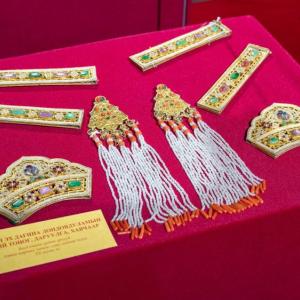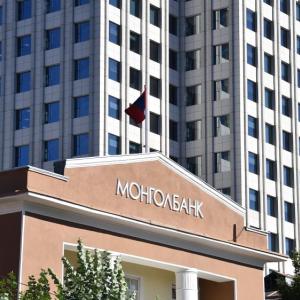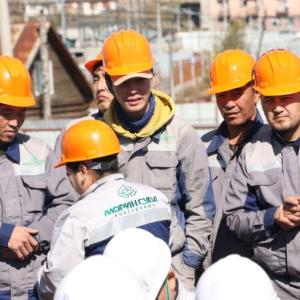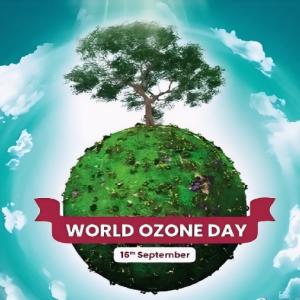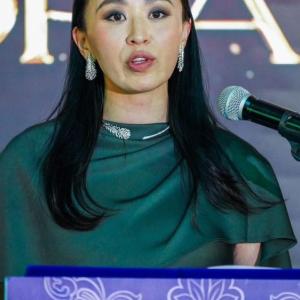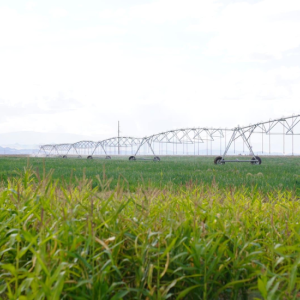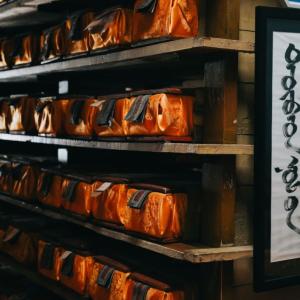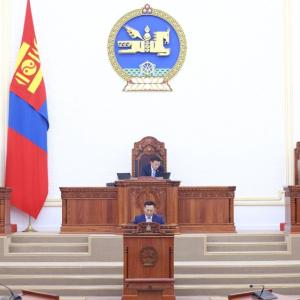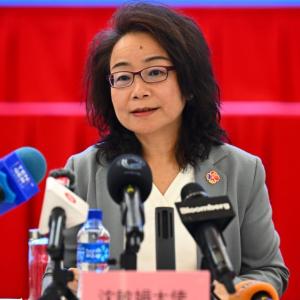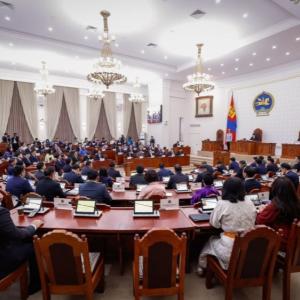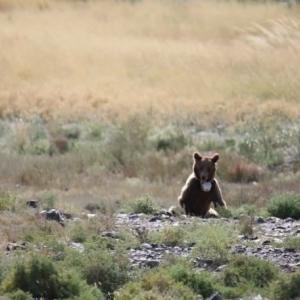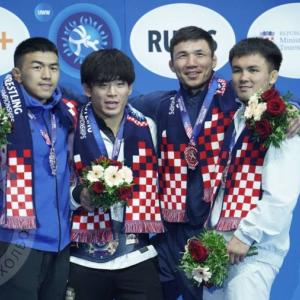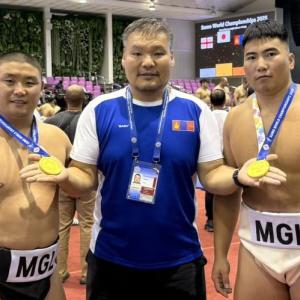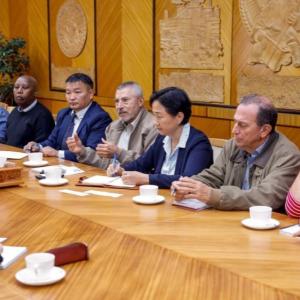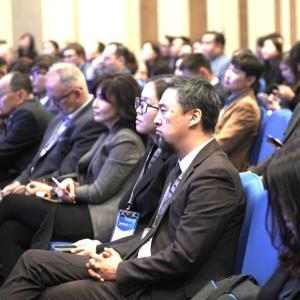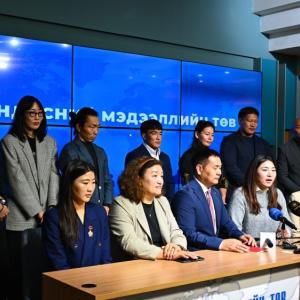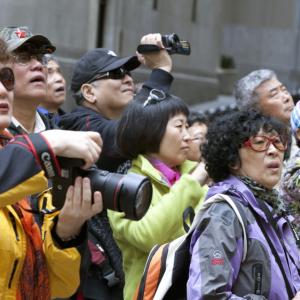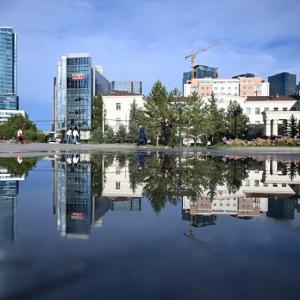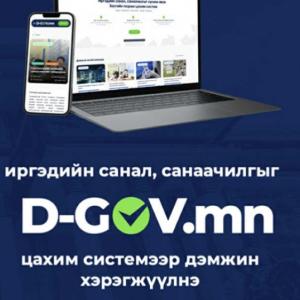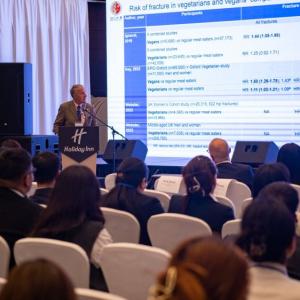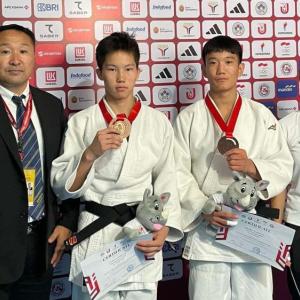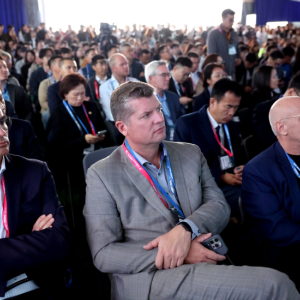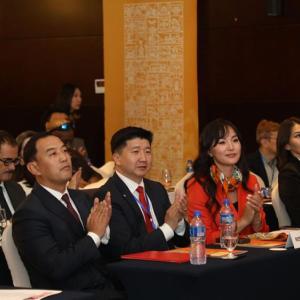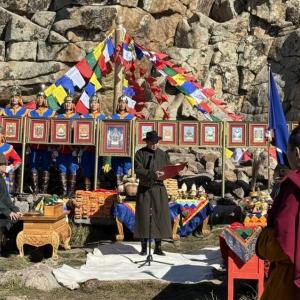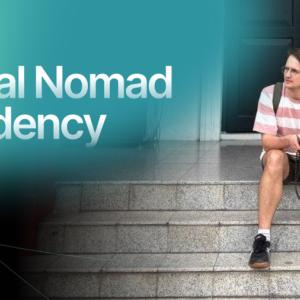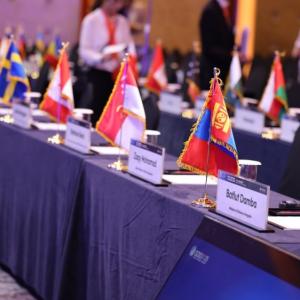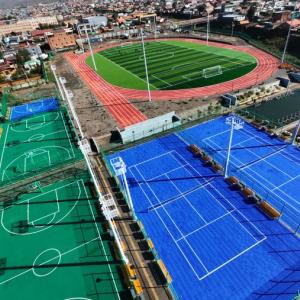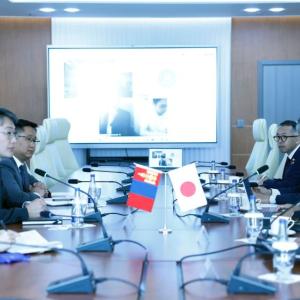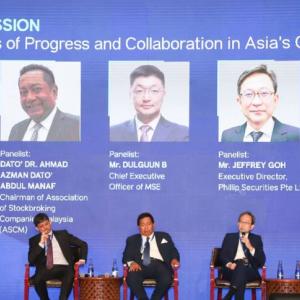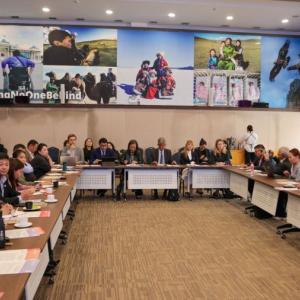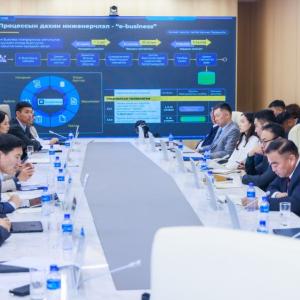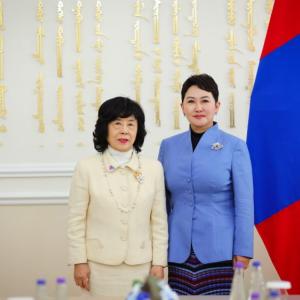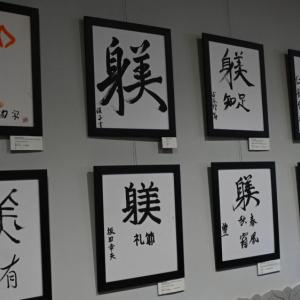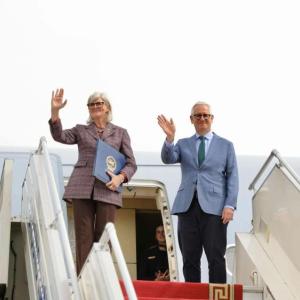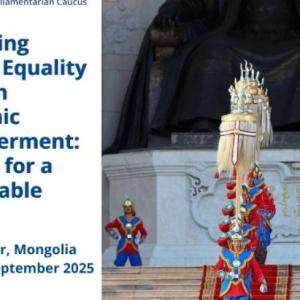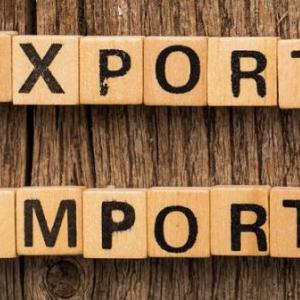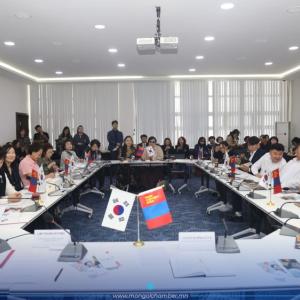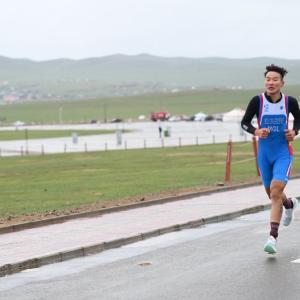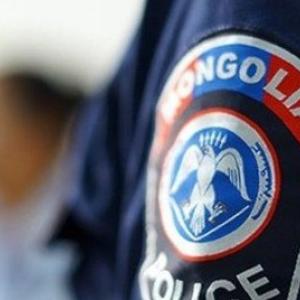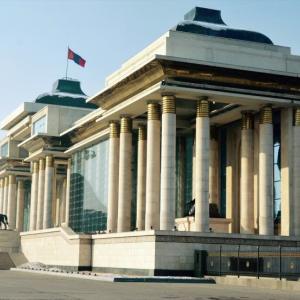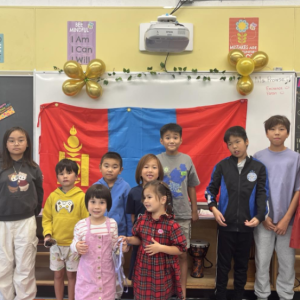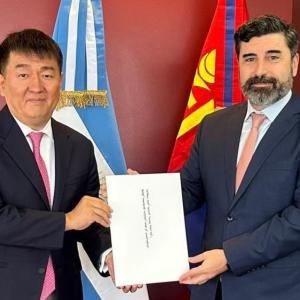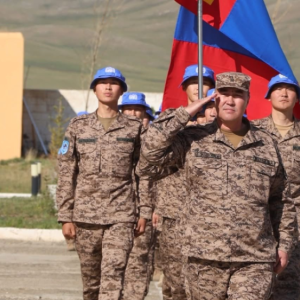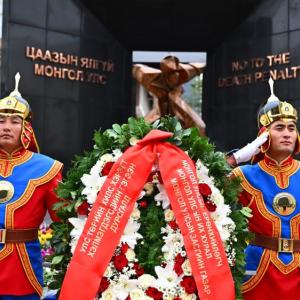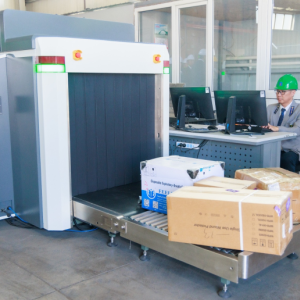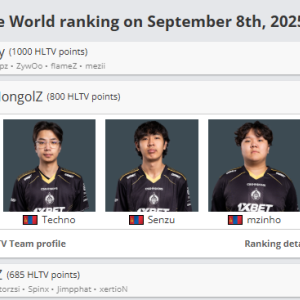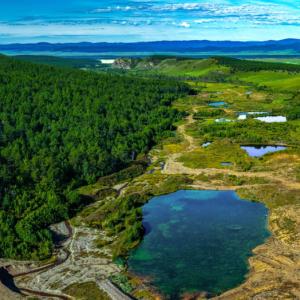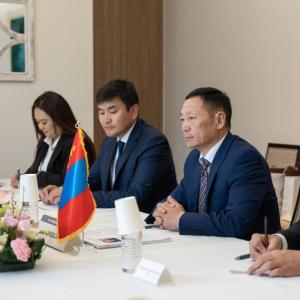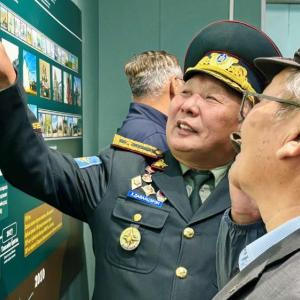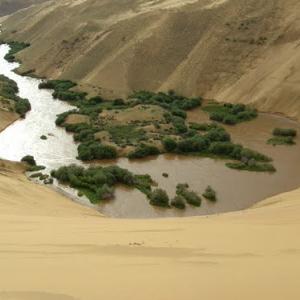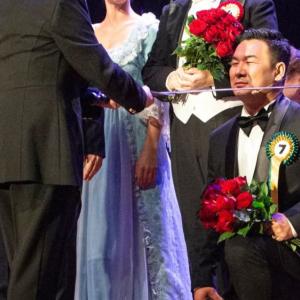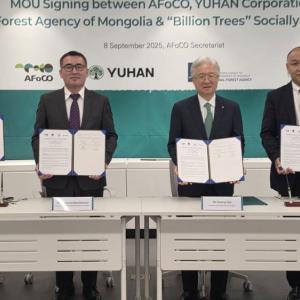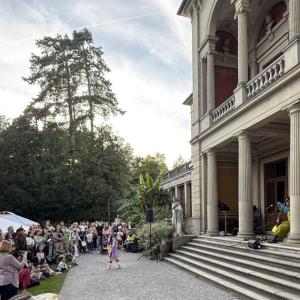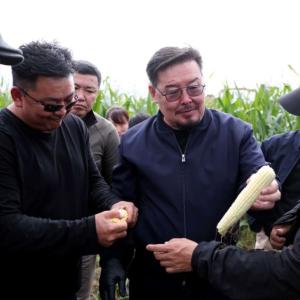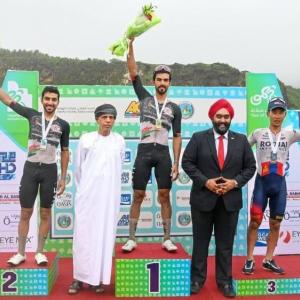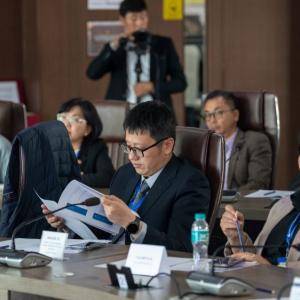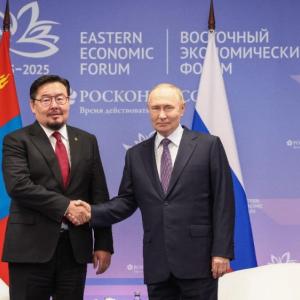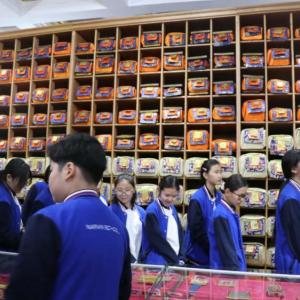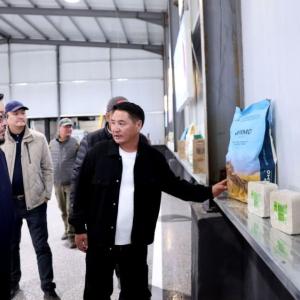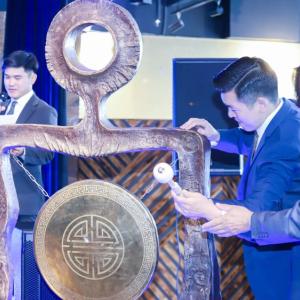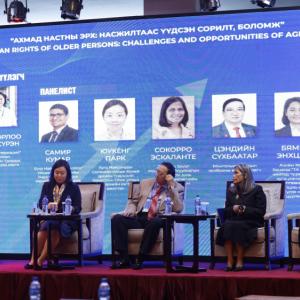Int'l training on ‘Upscaling Shearing for Sheep Wool Quality Improvement’ organized
Economy | Agriculture
Ulaanbaatar /MONTSAME/ The international level training with national ownership on “Upscaling shearing for sheep wool quality improvement” was successfully organized in Mandalgobi City and Dalai Bag of Saintsagaan Soum in Dundgobi Aimag, between 29th June and 5th July 2020.
The key stakeholders, including UN Resident Coordinator, UN Agency - United Nations Industrial Development Organization (UNIDO), Ministry of Food, Agriculture, and Light Industry of Mongolia, EU Delegation in Mongolia, the Governor of Dundgobi aimag, Altain Uulsiin Orgil cooperative from Khovd aimag and local communities of five aimags have collaborated on the value addition in animal husbandry and light industrial sectors.
“Support to Employment Creation in Mongolia (SECIM)” the joint project is financially supported by EU and it is being implemented with UNIDO and supported by many multi-stakeholders. Overall, the project outcomes are contributing to the SDG9 and UNIDO’s mandate of Inclusive and Sustainable Industrial Development. The project is being implemented also in line with the Government policies and programs including Sustainable Development Vision 2030, Industrialization 21:100, Cashmere, Meat and Dairy, Healthy Food-Healthy Mongolians and Mongol Export.

Meeting with Governor of Dundgobi and his cabinet
The RC is with heads of Agriculture Department, Labour and Social Welfare and UNIDO National Project Coordinator
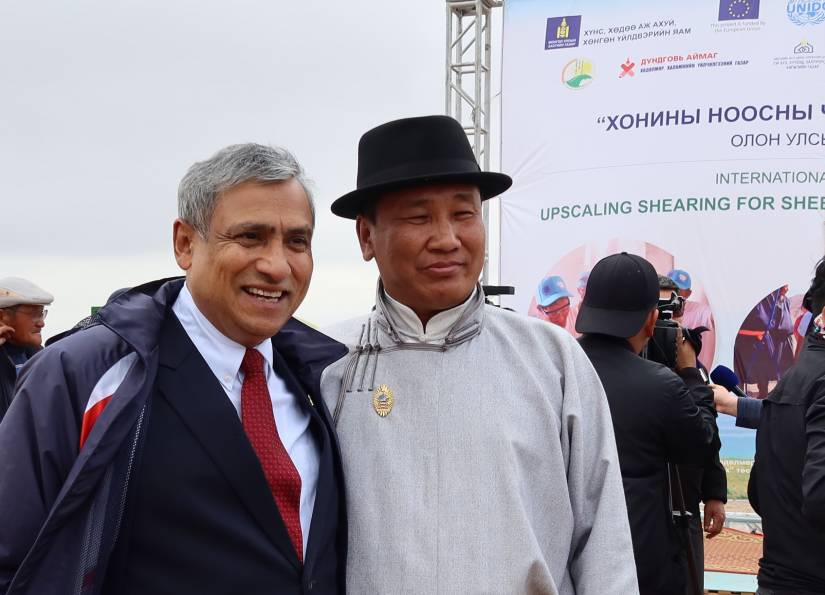
At the opening session of the international training, the UN Resident Coordinator Mr. Tapan underlined importance of multi-stakeholders’ collaboration and expressed gratitude to the then Minister of Food, Agriculture, and Light Industry Mr. Ch.Ulaan, Governor of Dundgobi aimag Mr. O.Bat-Erdene, Head of Agriculture Department of Dundgobi aimag Mr. B.Munkhjargal, and Delegation of the European Union, National Project Coordinator of UNIDO Ms. Munkhbolor.G, Director of “Altai Mountain Summit” secondary cooperative from Khovd aimag and trainer Mr.T.Altansukh, Governor of Saintsagaan soum Mr. R.Munkhtogtokh, Chairman of Dalai Bagh Mr. J.Zorigtbaatar, Head of Dundgovi Chamber of Commerce and Industry Ms. D.Ganchimeg, and Head of Labour and Social Welfare of Dundgobi aimag G.Khishigdavaa, for their proactive partnership, substantial contribution and continues collaboration with UN Agencies and emphasized importance of creating value addition based export capacity instead of import oriented consumer culture and supporting employment creation in Mongolia.
The Resident Coordinator emphasized the active role of the UN in Mongolia and its 11 specialized agencies providing multi-sectoral technical assistance and highlighted great contribution being made by UNIDO and SECIM projects, by achieving substantial results such as transferring internationally recognized, advanced yet affordable, scale-able, and locally adaptable technologies, and knowledge complementing the national expertise, improving quality of raw materials and products, and institutionalizing the blended e-learning programs. Mr Tapan was glad to reiterate the Governor’s acknowledgement about UN-FAO’s humanitarian and technical assistance provided to its local herder communities for overcoming risks of harsh seasons.

The UN RC Mr. Tapan Mishra is launching the shearing training
 Mr. Altansukh Tumee, head of Altai Mountain Summit cooperative with his team of master and assistant shearers
Mr. Altansukh Tumee, head of Altai Mountain Summit cooperative with his team of master and assistant shearers
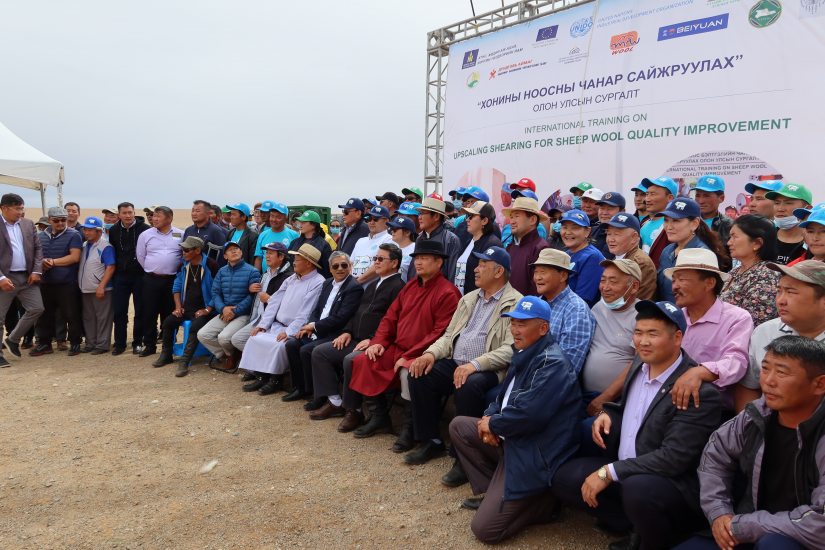
Guests
Then Minister of Food, Agriculture, and Light Industry, Mr. Ch.Ulaan informed about policies of the government on improving competitiveness of the agricultural sector by introducing new and advanced technologies, increasing employment, adopting environmentally friendly production methods, promoting import-substituting value-added export oriented production, aligning with waste and recycling industry. Within the framework of this policy, the Ministry of Food, Agriculture and Light Industry is organizing multi-pillar measures to develop the deep processing industries based on livestock raw materials, in accordance with international standards.
The main requirement of wool processors addressed to herders is that the length of the sheared wool should be uniform, separated by color and various parts of livestock body, and thoroughly washed. To address this, Australian and New Zealand best practices were introduced in Mongolia in 2019 by UNIDO. Sheep are washed before shearing and the wool is sheared mechanically with modern equipment and sorted by colour and quality. As a result, the wool yield per sheep has increased from 70% to 90%, followed with quality improvement of uniformity. Also, the normal amount of time required for hand shearing per sheep decreased from 15 minutes down to about 2 minutes. Bringing these best practice with the assistance of an international shearing expert who is original from Mongolia but now based in New Zealand is one of the examples and models of institutionalizing the practical skills of improving the quality of raw materials for increased value added exports of better quality products.
As we are all aware Mongolia joined the UN in 1961 and next year would be 60th anniversary of Mongolia's membership of the United Nations. This year is also UN’s 75th anniversary commemorating its establishment and therefore we are looking forward to a campaign called “UN+75”, which his launching with vision of identifying next 25 years of development agenda and thus defining how enhanced international cooperation can help realize a better world, including Mongolia.
UN operates in Mongolia with an objective of supporting it and its people by establishing the United Nations Development Assistance Framework in every five years, which is based on principle of “inclusive development without leaving anyone behind” and Sustainable Development Goals.
In response to the RC’s inquiry about the long term development vision of Dundgobi aimag, the governor briefly elaborated about his sustainable development agenda:
- Manufacturing of value added final end goods and products based on raw materials produced in animal husbandry sector, including meat, milk, leather, wool, and cashmere.
- Development of eco-tourism based on Dundgobi aimag’s natural pristine landscape and historically and culturally significant sights and monuments such as Ikh Gazriin Chuluu, Baga Gazriin chuluu, Sum Khukh Burd, and Tsagaan Suvarga.
- SMEs’ development and facilitation in abovementioned priority sectors and subsectors.
- Development of the responsible mining in Dundgovi aimag and focus on technically and economically most feasible mining deposits, including Salkhit main deposit and avoid extracting alluvial deposits.
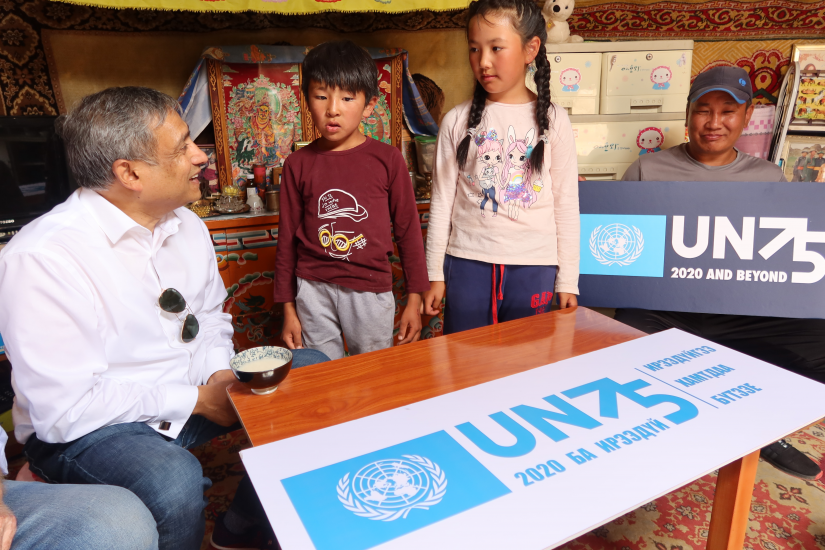
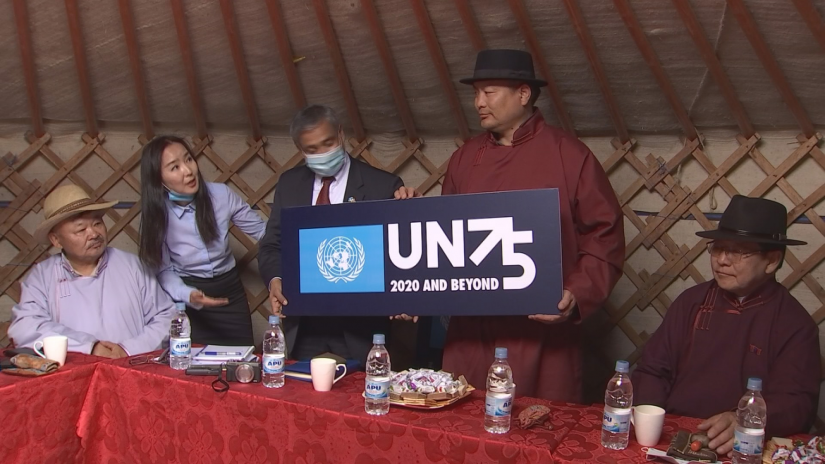
Along his travel to Dundgobi aimag center Mandalgobi and Saintsagaan soum, UN RC visited a herder family of Mr. Narantsogt in Delgertsogt soum. As the herder parents, they were glad to have their children handy around them due to COVID-19 lockdown of schools, as children would help them for their daily chores and taking care of animals. Lack of high speed internet access in rural region limits the children’s effective involvement in online educational services. However, their parents have aspiration to get their children highly educated and successful in their future career. Just as every Mongolian fellow herders with good educational background and high literacy rate, those children have great aspiration about their future and professional career. An oldest girl, Misheel wanted to become a hairdresser first, and then a prosecutor, whereas a girl from neighborhood wanted to become a doctor and the youngest boy already had decided to become a herder with more than thousand heads of livestock.
Pastureland degradation due to climate change and overgrazing beyond pastureland carrying capacity leaves them with no choice but to migrate for long distance grazing for their livestock survival. This extra labor of searching for better pastureland far away from their local region can be alleviated as better access to water is ensured by building the deep drill wells as well as rehabilitating and maintaining the degraded pastureland through rotation, resting, and fencing. Understanding challenges and opportunities at grass-root level, especially at herder communities in Mongolia, would shed more insight in UN+75 campaign that complies with UN principle of “leaving no one behind” along the development process.
Source: UN Mongolia

 Ulaanbaatar
Ulaanbaatar

